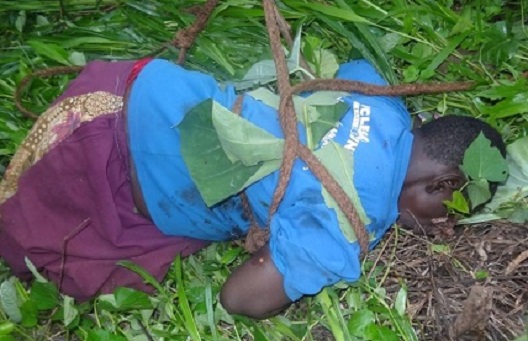
Amid the increasing political unrest in the Democratic Republic of Congo, senior Catholic leaders have reported increasing attacks on church properties, and the intimidation and even torture of clergy. Below, World Watch Monitor’s Africa Bureau Chief, Illia Djadi, gives his perspective on what’s driving the new wave of violence.
What is happening to the Catholic Church in DRC?
ID: “There has been an upsurge of attacks targeting the Catholic Church in DRC in recent weeks and months. From Kinshasa, the capital, to the central Kasai province and, more recently, the eastern North-Kivu province, churches, convents and Catholic schools have been vandalised, looted by armed men, groups of youths or militiamen.
“The attacks against the Catholic Church started in February, with demonstrations that occurred on 7, 10 and 11 February in front of the Archbishopric of Kinshasa, by groups of young people. This was then followed by more violent attacks.
“On 18 February, the Malole major seminary in Kananga, in central Kasai, was ransacked and set on fire by militiamen.
“On 19 February, the parish church of St. Dominic in the Limete municipality of Kinshasa was attacked by a group of youths, who attempted to set fire to the church.
“On 31 March, militiamen attacked the town of Luebo, sacking several church buildings, including St. John’s Cathedral. The priests had to flee to the forest for safety.
“On Sunday 2 April, armed men attacked the parish of Paida in the eastern town of Beni (North Kivu). Three priests were tortured. The attackers also stole money, computers and other goods.”
What’s the background to this?
ID: “An insurgency has been spreading since President Joseph Kabila failed to step down last December (at the end of his constitutional term of office). But following weeks of negotiations with the opposition, brokered by the Catholic Church, Kabila agreed that he would leave office after holding an election by the end of this year. However, negotiations collapsed last week amid a disagreement over the procedure for nominating a new Prime Minister from the main opposition bloc.
“Meanwhile, unrest began in central Kasai Province in August when government soldiers killed tribal leader Jean Pierre Mpandi (also known as Kamwina Nsapu), who had launched an uprising against the government. The uprising has since spread to four other provinces and both militiamen and security forces have been accused of human rights violations; a number of mass graves have been discovered in Kasai and last month two UN experts sent to investigate abuses were abducted and killed.
“In addition, the east of the country has been plagued by instability and violence for two decades. The vast eastern region of North-Kivu, which borders Rwanda and Uganda, has long suffered from lawlessness, and civilians have found themselves at the mercy of militias, rebels and military units. Violence there is exacerbated by competition for the region’s vast mineral wealth. This has created a fertile ground for the rise of a jihadist group, ADF-NALU.”
Is this religious persecution?
ID: “No, in that it does not constitute a threat to life or freedom on account of religion, which is broadly how the UN defines religious persecution. The leadership of the Catholic Church, which is a powerful force in the country, believes it is being targeted because of its involvement in the political mediation. So far, Protestant and Evangelical churches have not been attacked, nor, generally, have lay-Catholics.
“The perpetrators are believed to be either members of political parties or militiamen, unhappy with the political deal. Although the Catholic Church has been critical of President Kabila, Nsapu’s followers have rejected the December agreements and argue that his Government has no right to still be in power. In late March, however, the bishops announced they would pull out of further mediation regarding the implementation of these agreements, citing ‘the lack of sincere political will and the inability of political and social actors to find a compromise’.”
Another perspective
Yonas Dembele, an analyst for the World Watch Research unit of Open Doors, which supports Christians under pressure for their faith around the world, added: “Unless President Kabila’s government reaches a settlement with the opposition, it is very likely that the instability in the country will escalate. Any escalation would be likely to expose Christians in DRC to persecution emanating from various sources: If DRC were to descend into another cycle of civil war and chaos, organised crime, ethnic antagonism and militant groups – possibly including radical Islamic groups – could threaten the safety of Christians. Given the size of DRC, it is also likely that any instability could have a spill-over effect in neighbouring countries. It is therefore hoped, that the UN and regional powers will step up their efforts to help resolve this crisis.”